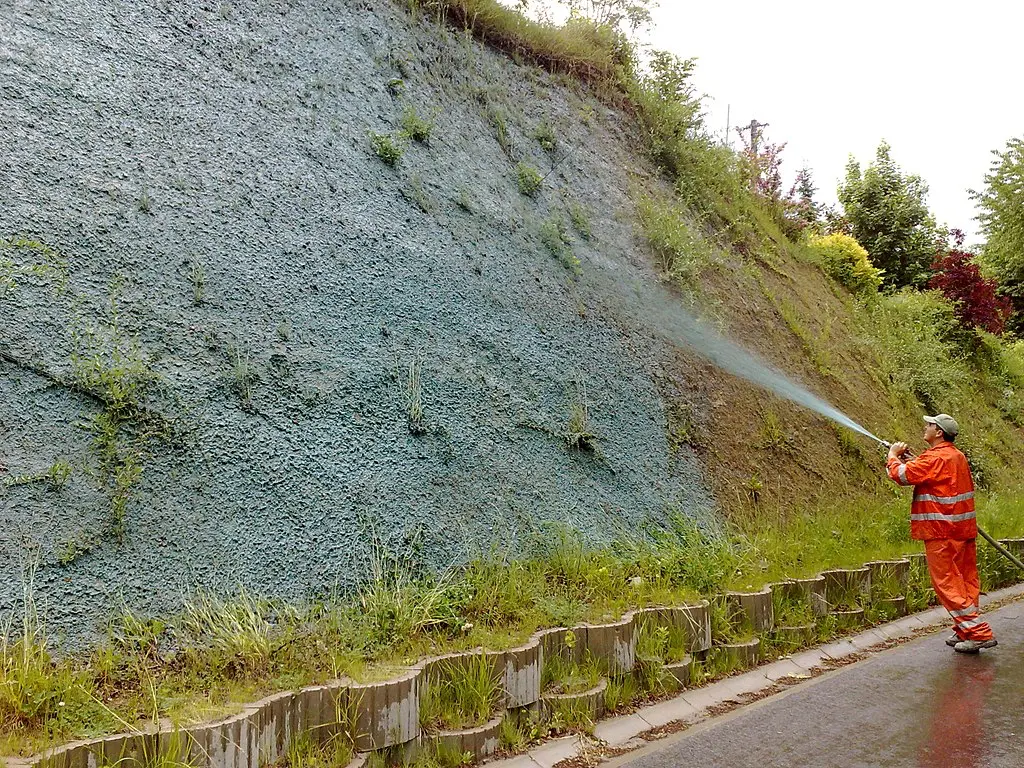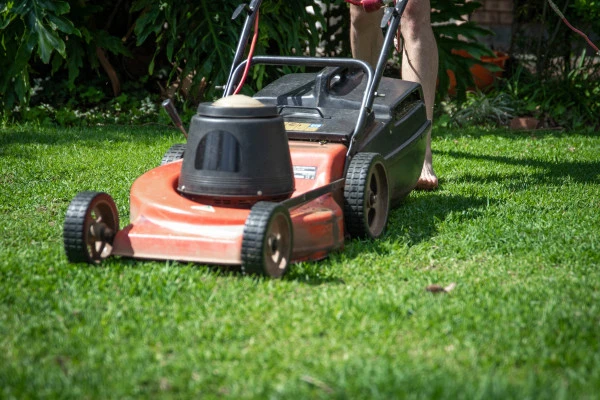How Much Does Hydroseeding Cost?

Hydroseeding, sometimes called hydraulic mulch seeding or hydromulching, is a process that uses a mixture of seeds, mulch, and water, sometimes combined with other materials, to promote fast and efficient grass growth. One of the primary benefits is the rapid establishment of vegetation, reduced soil erosion, and the ability to customize the seed mix for various conditions.
Factors Influencing Hydroseeding Costs
1. Size of the Area
You can often divide the cost per square foot or acre basis. For instance, a general estimate might be:
| Size | Cost |
| 1,000 sq. ft. | $100 - $150 |
| 1 acre (43,560 sq. ft.) | $1,500 - $3,000 |
2. Type of Seed Mix
Common lawn grass seeds can be cheaper than specialized mixes or native grasses.
| Seed Type | Cost per pound |
| Basic grass | $2 - $5 |
| Native species | $10 - $20 |
3. Mulch Choice
The choice of mulch can influence seed germination and growth speed.
| Mulch Type | Cost per pound |
| Basic wood/paper | $0.5 - $1.5 |
| Premium hydro mulch | $2 - $4 |
4. Labor Costs
Depending on the region, the hourly wage for labor can vary between $20 and $50. Additional services can also impact labor costs.
5. Equipment Used
Renting a standard hydroseeder can range from $100 to $300 per day, while professional services might incorporate these costs in the overall pricing.
6. Site Accessibility
Hard-to-reach or sloped areas might increase costs by 10-30% due to the added labor and equipment needs.
7. Water Availability
For sites requiring water transport, costs might increase by an additional $50 to $150.
8. Travel and Transportation
A flat fee might be added for travel beyond a certain radius, typically $1 per additional mile.
Average Cost Breakdown
- Residential Properties: For an average suburban lawn of 5,000 sq. ft., you could expect costs ranging from $500 to $750.
- Commercial Properties: A park might be 5 acres, costing anywhere from $7,500 to $15,000.
- Large Scale Projects: For areas like highway embankments spanning 20 acres, costs range from $30,000 to $60,000.
Comparisons with Other Seeding Methods
- Traditional Seeding: This method involves manually sowing seeds. Costs might be lower at $0.05 to $0.10 per sq. ft., but the effort and time taken might be higher.
- Sod Installation: Laying sod offers instant results. Costs can range from $1 to $2 per sq. ft. for the sod plus labor.
- Artificial Turf: The initial installation might cost between $5 to $20 per sq. ft., but this is a one-time expense with minimal maintenance afterward.
Cost-saving Tips and Tricks
- DIY Hydroseeding: Purchasing a small home-based hydroseeding kit can save labor costs.
- Seasonal Discounts: Some contractors offer off-peak discounts.
- Local Suppliers: Working with local suppliers might reduce transport costs and offer fresher seed mixes.
The formula for Calculating Hydroseeding Cost
- Seed Costs (SC):
SC = (Area to be seeded) x (Cost per unit area of seed mix) - Mulch Costs (MC):
MC = (Area to be seeded) x (Cost per unit area of mulch) - Labor Costs (LC):
LC = (Number of hours required) x (Hourly labor rate) - Equipment Costs (EC):
EC = (Number of days required) x (Daily rental rate) - Site Accessibility Costs (SAC):
SAC = Base cost x (Percentage increase due to site difficulty / 100)
For example, if there's a 20% difficulty premium, then: SAC = Base cost x 0.20 - Water Transport Costs (WTC) (if applicable):
WTC = (Cost of water transport per day) x (Number of days required) - Travel and Transportation Costs (TTC):
TTC = Flat travel fee + (Cost per additional mile x Miles beyond the included radius)
To get the total hydroseeding cost (THC):
THC = SC + MC + LC + EC + SAC + WTC + TTC
Example
For a 1-acre land (43,560 sq. ft.), with a seed mix costing $0.04 per sq. ft. and mulch at $0.03 per sq. ft., labor rate of $30 per hour for 8 hours, equipment rental of $200 per day for two days, 15% added cost for slope, and a $50 travel fee plus $1 per mile for 20 extra miles:
- SC = 43,560 x $0.04
- MC = 43,560 x $0.03
- LC = 8 x $30
- EC = 2 x $200
- SAC = (SC + MC + LC + EC) x 0.15
- WTC = $0 (if no water transport is needed)
- TTC = $50 + ($1 x 20)
Add up SC, MC, LC, EC, SAC, WTC, and TTC to get the THC.
Frequently Asked Questions (FAQ) about Hydroseeding
1. What is hydroseeding?
Hydroseeding is a planting process that involves a mixture of seeds, mulch, and water, sometimes combined with fertilizers or other additives. This slurry is sprayed onto the ground to promote fast and efficient grass or vegetation growth.
2. How long does it take for hydroseeded grass to grow?
Typically, you may begin to see germination in 5-14 days, depending on the seed mix and weather conditions. Entire lawn establishment often takes 3-4 weeks, which can vary.
3. How does hydroseeding compare to laying sod?
Hydroseeding generally costs less than sod and offers customization with different seed types. However, sod provides an "instant lawn." While hydroseeding takes time for the lawn to establish, sod can give immediate results but at a higher cost.
4. Is hydroseeding suitable for all types of soil?
Hydroseeding can be effective on a variety of soil types. However, soil testing and preparation might be necessary for areas with poor soil quality to ensure the best possible results.
5. How do I care for my hydroseeded lawn?
Maintain steady moisture in the soil during the initial weeks to encourage seed sprouting. Avoid foot traffic on the newly seeded areas until the grass is well-established. Fertilizing and regular mowing can begin once the grass reaches a sufficient height.
6. Why is my hydroseeded area turning a light green or yellowish color?
This color change often indicates that the mulch is drying out. Keeping the seeded area moist, especially in the first few weeks, is essential to promote seed germination.
7. Are there any environmental concerns with hydroseeding?
Hydroseeding can be environmentally friendly, especially using organic mulches and native seed mixes. It helps prevent soil erosion and can be used to rehabilitate damaged ecosystems. However, always check the components of the slurry to ensure they're eco-friendly.
8. Can I hydroseed over an existing lawn?
Yes, you can use hydroseeding for overseeding to revitalize sparse or damaged lawns. Before hydroseeding, mow the existing grass short and rake away any debris.
9. Is there the best time of year to hydroseed?
Spring and early fall are often considered the best times because of milder temperatures and more consistent rainfall. However, with proper care, you can also hydroseed at other times.
10. How cost-effective is hydroseeding compared to traditional seeding?
While the upfront cost of hydroseeding can be higher than traditional seeding, its efficiency, faster establishment, and reduced labor can make it more cost-effective in the long run, especially for larger areas.
Questions to Ask When Evaluating Hydroseeding Companies
1. Experience and Reputation
- How many years have you been in the hydroseeding business?
- Could you share references or showcase past projects comparable to my requirements?
- Do you have any industry certifications or affiliations?
2. Materials and Methods
- What type of seed mix do you recommend for my soil and climate?
- What kind of mulch do you use, and are different options available?
- Do you include soil conditioners, fertilizers, or tackifiers in your slurry mix? If so, what are they?
3. Equipment and Crew
- What equipment do you use, and is it suited for a project of my size?
- How many crew members typically work on a project like mine?
- Do you ensure regular maintenance of your equipment?
4. Preparation and Aftercare
- How do you prepare the soil before hydroseeding?
- Do you offer services for soil testing or soil amendment?
- What aftercare recommendations or services do you provide to ensure successful germination?
5. Timeline and Availability
- How soon can you start the project?
- What is the expected timeline for completion?
- How does the weather impact your scheduling, and how do you handle delays?
6. Costs and Warranty
- Can you provide a detailed cost estimate for my project?
- Are there any potential additional costs or scenarios where the initial quote might change?
- Do you offer any guarantees or warranties on germination rate or lawn establishment?
7. Licensing and Insurance
- Are you fully licensed to operate in this area/state?
- Are you insured for liability, and do you provide workers' compensation for your staff?
8. Environmental and Safety Concerns
- Are the products you use eco-friendly or organic?
- How do you ensure the safety of my property, family, and pets during the hydroseeding process?
- How do you reduce erosion or runoff, especially on sloped areas?
9. Maintenance and Future Services
- Do you offer additional lawn maintenance services post-hydroseeding?
- Can you provide guidance or services for future overseeding or lawn rehabilitation?
- What steps can I take to ensure the longevity and health of my hydroseeded area?
10. Communication and Customer Service
- Who will be my primary point of contact during the project?
- How often will I receive updates, and in what form (e.g., phone, email)?
- How do you handle concerns or issues that might arise during the project?
You can use these questions to assess a hydroseeding company's expertise, reliability, and fit for your particular requirements. Always take your time to research and evaluate before making a decision.
Hydroseeding offers a balanced approach between cost and efficiency. While upfront fees might seem high, the rapid and uniform growth and long-term benefits can make it a worthy investment. Understanding your project's specific needs and conditions will help you obtain a more accurate estimate.
The opinions articulated in this piece are the guest author's and may not necessarily align with those of Crackerjack. Find more about staff authors of Crackerjack

